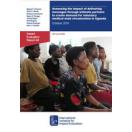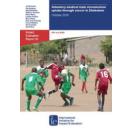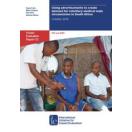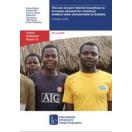Voluntary Male Medical Circumcision Evidence Programme
It is widely recognised that preventive measures are crucial in tackling the HIV epidemic in Sub-Saharan Africa. Three randomised controlled trials and numerous observational studies have shown that male circumcision reduces HIV acquisition by approximately 60 per cent for men, suggesting that efforts to increase male circumcision can play a significant role in HIV prevention. While several programmes have focused on increasing the prevalence of male circumcision programmes and health care facilities to provide these services, progress in this area has been modest. 3ie supported seven pilot interventions and their impact evaluations to generate evidence on what works to increase demand.
To help inform the design of this evidence programme, 3ie published a scoping report on interventions to increase the demand for voluntary medical male circumcision. The report provides an overview of the interventions implemented in 14 Sub-Saharan African countries to increase uptake of medical male circumcision and the available evidence on the effectiveness of these interventions. This programme was designed in coordination with and with support from the Bill & Melinda Gates Foundation.



